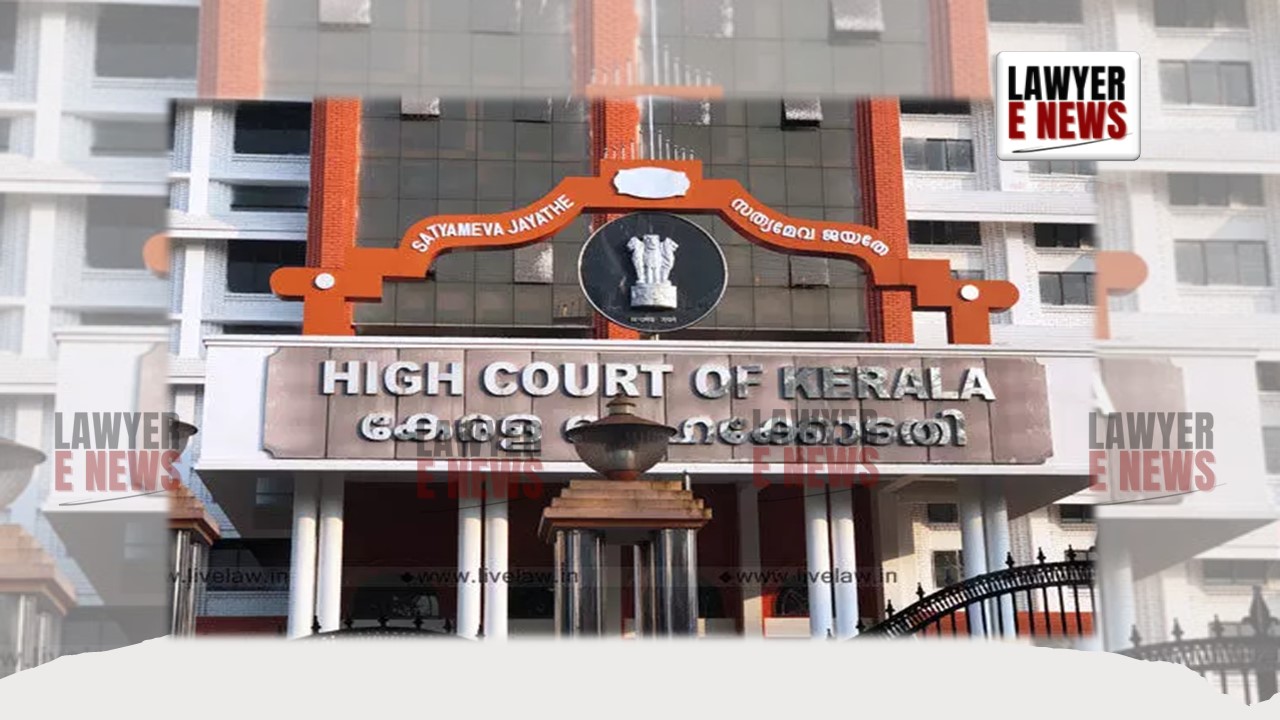-
by Admin
15 February 2026 5:35 AM



Kerala High Court upheld a trial court’s decision permitting an amendment in a property dispute case, dismissing the objections raised by the petitioner, Cheriyan George. Justice Viju Abraham ruled that the Sub Court in Devikulam had appropriately exercised its discretion under Order VI Rule 17 of the Civil Procedure Code (CPC) to allow a plaintiff to incorporate additional details alleging fraud and misrepresentation. The court underscored that, as per precedent, a liberal approach is favored in allowing amendments, especially when they do not unduly prejudice the defendant.
The dispute stems from a suit filed by the respondent, A.C. Cherian, in 2019 seeking to cancel a sale deed and obtain an injunction against Cheriyan George. Cherian alleged that the sale deed was fraudulent, claiming that George had misappropriated a cheque he provided, ostensibly to secure a loan, and instead used it to execute a sale deed transferring the property without consent or consideration.
Initially, the trial court dismissed the suit for default when Cherian was unable to attend due to illness. However, following a restoration petition (RP No. 3 of 2023), the suit was reinstated. When it resumed, Cherian sought to amend his complaint to add specific allegations of fraud against George. The trial court granted the amendment request in January 2024, which George challenged, arguing that it was an attempt to delay the proceedings.
George contended that the amendment was inappropriate at the advanced stage of the trial. Citing the proviso to Order VI Rule 17 CPC, which discourages amendments after the trial has commenced unless due diligence could not have surfaced the matter earlier, he argued that the respondent’s amendment request lacked merit and was intended solely to prolong the case. George further noted that the trial court’s order lacked sufficient reasoning, alleging it was a “non-speaking” order that did not properly address his objections.
Cherian, however, countered that the amendment was necessary to fully articulate his case and prove the alleged fraud. He argued that the fraudulent transaction's full impact and details became clearer over time, and without the amendment, his case would be incomplete. His counsel cited judicial precedent favoring a flexible approach to amendments, especially in complex property disputes involving allegations of fraud.
Justice Viju Abraham analyzed the trial court’s application of Order VI Rule 17 CPC and found its reasoning sound. He underscored that while the provision generally restricts amendments once a trial has commenced, exceptions are permissible when necessary to achieve justice. The court emphasized that procedural law should facilitate, not obstruct, the resolution of substantive issues.
The court cited SEPC Limited v. V.S. Sunilkumar (2024), a recent ruling from the Kerala High Court, which encourages a “liberal approach” to amendments unless they cause undue prejudice to the opposing party. This precedent, Justice Abraham noted, aligns with the principles of fairness, ensuring that all material facts are considered for adjudication. He remarked:
“The amendment rules under Order VI Rule 17 CPC must be applied flexibly in cases involving serious allegations like fraud, especially where new details may emerge that are crucial to the case’s integrity.”
The court examined the details in Cherian’s amendment application and concluded that adding allegations of misappropriation and misuse of cheques was relevant to the claim. The amendment strengthened the argument that George had exercised undue influence over Cherian to execute a fraudulent transaction. Justice Abraham further held that “since the trial was resumed after the case was removed from the list and new procedural directions were issued,” the restriction on amendments after trial commencement was not strictly applicable.
The court affirmed that the proviso to Order VI Rule 17, which limits amendments post-trial commencement, does not apply rigidly in cases removed from the trial list and re-listed with ongoing interlocutory proceedings. The trial court had also issued an order directing George to produce handwriting samples for analysis, a procedural step that the court noted justified the trial’s flexible timeline.
Justice Abraham dismissed George’s contention that the trial court’s order was “non-speaking,” emphasizing that the trial court had duly considered and ruled upon the parties’ submissions.
The Kerala High Court upheld the trial court’s order permitting the amendment, allowing Cherian to proceed with the added claims of fraud and misrepresentation. The original petition challenging this decision was dismissed.
Date of Decision: November 4, 2024
Cheriyan George vs. A.C. Cherian
